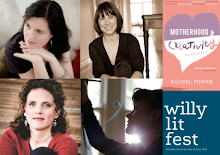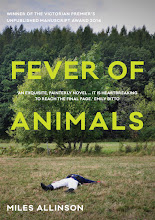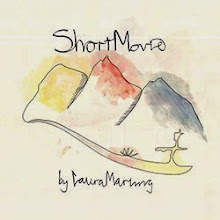
Recently I had the pleasure of interviewing Jane Sullivan about her new novel Little People (published by Scribe, out in April) for a feature that should be in the next Big Issue mag.
As well as a novelist, Jane is a prominent literary critic and Age columnist.
Little People is a rollicking, theatrical feat of imagination. One highly original Australian novel!
But you can read more about her book in the Big Issue story...
Both being working/writing mothers, Jane and I inevitably fell into talking about the struggle for finding time to write, but only a brief mention of this issue made it into the final cut of the article. So I thought I'd share Jane's words in full here...
The shift between journalism and literature is like a little switch that goes on and off in my head. I love writing about books and writing, which is my specialist field. They work in tandem quite well but I must say there are days when I wish I had more time.
It’s often a relief to get to the fiction because it’s fun to make things up and indulge yourself. But at the same time, it’s very, very hard. With fiction, I’m never sure what I’m doing. It’s much scarier than non-fiction.
Sometimes it’s good to have that discipline of the journalism. You have weeks when the fiction’s not going that well, you feel a bit lost, and you feel at least you feel you know what I’m doing here — I can write these words, I can get this money and I can see my byline in the paper, and I think well that’s done. And I get an immediate response from readers, which is nice, and you don’t get from fiction, which talks so many years.
Unfortunately the thing that always gets shelved if you’ve got a lot on is the fiction. It’s not like you’ve got a deadline next week, which is a shame.
Now I have a studio at Glenfern. Just having a little space where you can go and no interruptions — no one asking if you can give them lifts or give them money, and you don’t have to jump up and put the washing on or do a meal and the phone isn’t ringing or every five minutes you check your email — you don’t do any of that, you just sit there and write.
Everybody should have somewhere like Glenfern to go. The trouble with a room of one’s own for a woman is it’s usually in the house where everyone can bust in and interrupt you, and if a mother you can’t very well say ‘No, go away.’
So it’s very hard to get a room of one’s own which isn’t a room where everyone else comes. I don’t know the answer for that really.
I’ve talked to young men who are working, supporting their family, and so have similar pressures that women have. But women internalise that [mothering] role so much that it’s very hard to say to ourselves, ‘I am a writer and I am entitled to some space to work on my work and put that first for a while.’
It’s very hard to do that when everything else in your life is saying ‘I am a wife and mother and I need to earn money and all that’s so important, and writing is something I do when I’ve finished doing all those other things.’
Perhaps that’s where the difference lies in that men, on the whole, are better at giving themselves that permission.
















